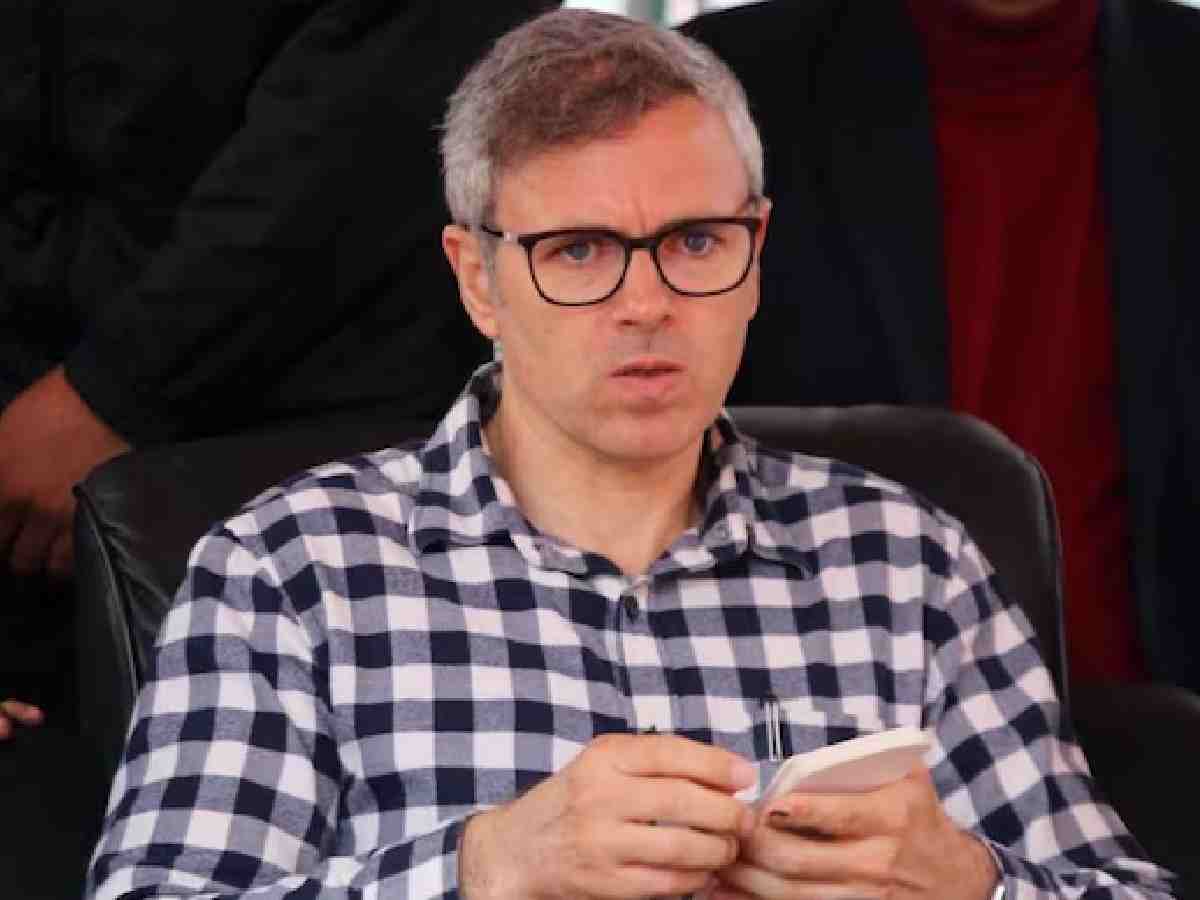BJP Berated Sacrifices of 1931 Because They Were Made by Muslims: Omar Abdullah
Srinagar 06 March 2025: Jammu and Kashmir Chief Minister Omar Abdullah has accused the Bharatiya Janata Party (BJP) of berating the sacrifices of the 1931 Kashmiri martyrs because they were Muslims. His remarks came during a heated debate in the Jammu and Kashmir Assembly, where he criticized BJP leader and Leader of the Opposition Sunil Sharma for his controversial comments on the 1931 martyrs.
Omar Abdullah’s Accusations
Speaking in the J&K Assembly, Omar Abdullah called out Sunil Sharma for his controversial comments on the 22 civilians who died in an uprising against Maharaja Hari Singh, a Hindu Dogra monarch, in Srinagar in 1931. “These 22 civilians sacrificed their lives to give a voice and seek rights. If these civilians were wrongly protesting, why did the Maharaja follow the July 13, 1931 incident with the constitution of the Glancy Commission and the Dalal Commission? It was because of these sacrifices that elections were held in J&K and Praja Sabha was formed, which resulted in the formation of the J&K Assembly later,” Abdullah said.
BJP’s Alleged Bias
Omar Abdullah accused the BJP of choosing to berate the sacrifices of 1931 because those who died were Muslims. “The only sin of these 22 civilians is that they were Muslims. Nowhere in India [do] people call those who raised their voice against monarchies and for democracy traitors,” he said.
Historical Context
The J&K Lieutenant Governor removed July 13 and December 5, the birthday of National Conference (NC) founder Sheikh Muhammad Abdullah, from the official holiday calendar after the Centre ended J&K’s special status in 2019. Justifying the L-G’s move, Sunil Sharma said the civilians who died in the police firing of 1931 “were not martyrs but traitors.” In the face of protests by the Treasury Benches, the Speaker later expunged Sharma’s remarks from the records of the House.
Respect for Historical Figures
Omar Abdullah emphasized that whether there was a holiday or not on July 13 and December 5, “no one can erase these sacrifices and the stature of Sheikh Muhammad Abdullah from the hearts of the people.” He also launched a scathing attack against the BJP for disrespecting the Dogra king. “When the NC or PDP or Congress ruled J&K, we never changed any names, whether it’s Shri Maharaja Hari Singh Hospital, Srinagar, or Sri Maharaja Gulab Singh Hospital, Jammu. The Maharaja’s legacy was a consolidated territory of erstwhile J&K, and State Subject laws to ensure jobs and land for locals. The BJP has done away with it,” he said.
Call for Action on PoK and China-Controlled Territories
Omar Abdullah asked the Centre to “take back Pakistan Occupied Kashmir (PoK)” and offered support for it. “There was a chance during the Kargil war to wrest back PoK. Why didn’t you (the BJP) do it? Now, Union Foreign (External Affairs) Minister S. Jaishankar has said they will bring it back. They should do it now. What stops the BJP? What about another portion that is with China. Why doesn’t anyone talk about that?” he said.
PDP’s Response
The Peoples Democratic Party (PDP) organized street protests in the Kashmir Valley, seeking an apology from Sunil Sharma for his controversial remarks. PDP leader Iltija Mufti led the protests, accusing the BJP of trying to manipulate history with a divisive agenda. “The people of J&K made sacrifices for democratic ideals, just as the rest of the country did. The only difference being that their struggle was against a local ruler,” she stated.
Bottom-Line
Omar Abdullah’s remarks highlight the ongoing political tensions and the complexities of the Kashmir issue. His call for the retrieval of both PoK and the part of J&K under Chinese occupation underscores the need for a comprehensive approach to resolving territorial disputes. The emphasis on respecting historical figures and the sacrifices made by the people of Jammu and Kashmir reflects the broader aspirations of the region’s populace.



